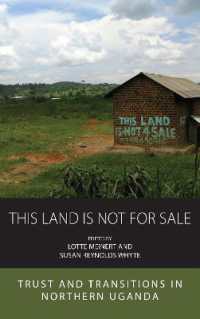Full Description
Break the Cycle of Children's Environmental Health Disparities (Break the Cycle) is an annual collaborative interdisciplinary research and training program involving university students in academic tracks focusing on the impact of adverse social, economic, environmental, and political factors on children's health, development, education, and prospects for their future. The target populations are communities where there is a substantial measure of poverty associated with social, ethnic, racial, and political marginalization, environmental exposures and environmental injustice with high risks to children's health and well-being. Participating students are required to develop projects that focus on preventing or reducing adverse environmental factors or their impact on children's health and promote positive practices to improve the future outcome for children who live in these communities. Student projects cover a wide range of adverse factors and their associated health implications across the lifespan, and propose solutions at an individual, family, community, and societal level, with the potential for a positive intergenerational impact. At the end of the project period, participating students are required to present the results of their work at a national conference and then write a manuscript for publication. The papers in this publication represent the work of students who participated in the 15th Annual Break the Cycle program 2019-2020. The phrase Break the Cycle in this context uses the ecological construct of the cycle of environmental health disparities and offers a framework for tackling health disparities and promoting health equity among children who are vulnerable as a consequence of adverse social, economic, environmental and political factors.
Contents
Introduction; Break the Cycle of Childrens Environmental Health Disparities: 15th Annual Review of Program and Student Projects; Environmental Justice and the Future of America; Gentrification and Childrens Health: Conceptualizing the Impacts of Neighborhood Change Through an Environmental Health Disparities Framework; Early Antiretroviral Treatment in Children with HIV Improves Health Outcomes: A Review of Findings from South Africa; Measuring Parenting Dimensions and Social and Prosocial Abilities in Adolescents from Vulnerable Families in Chile; The Efficacy of Private Well Testing in North Carolina for Predicting Childhood Blood Lead Levels; Residential Indoor Lead Dust Concentration in Omaha, Nebraska; Urinary Bisphenol A Levels Among SES-Diverse Pregnant African American Women in Atlanta; Age-Adjusted Pediatric Cancer Incidence Related to Nitrate Concentration Measured Through Citizen Science in Nebraska Watersheds; Area-Level Deprivation and Overweight and Obesity in Mexican Children and Adolescents; Reimagining Reproductive Justice: A Commentary on the Intersection of Environmental Injustice and Adverse Reproductive Health Among Women in Marginalized Communities; EPA Resources and Strategies to Address Environmental Justice Challenges; Designing an Environmental Justice Mini Case Study (Table-Top) Exercise for an Interdisciplinary Audience; Acknowledgements; About the Editors; About the Break the Cycle of Health Disparities Inc; About the Pediatric Environmental Health Specialty Units (PEHSU); About the National Institute of Child Health and Human Development in Israel; Index.








